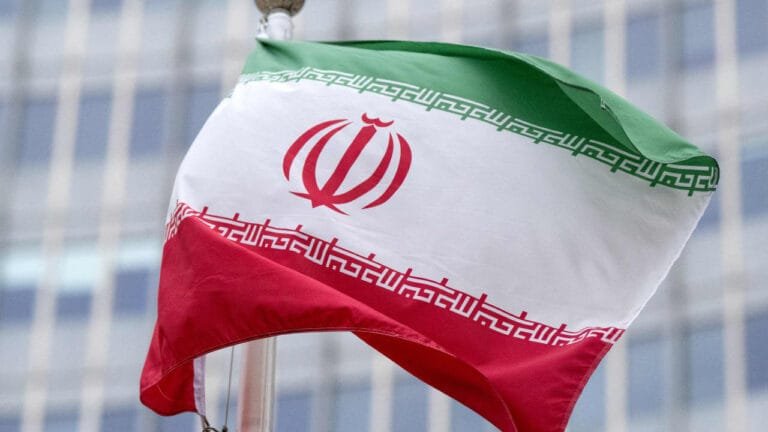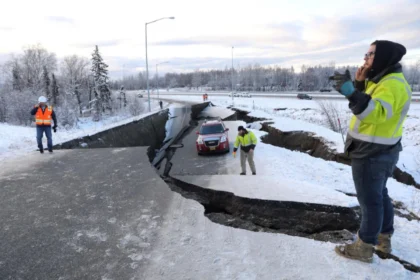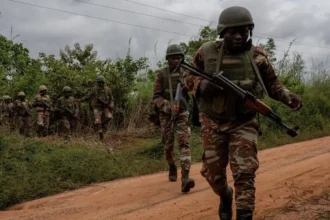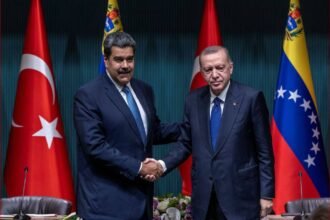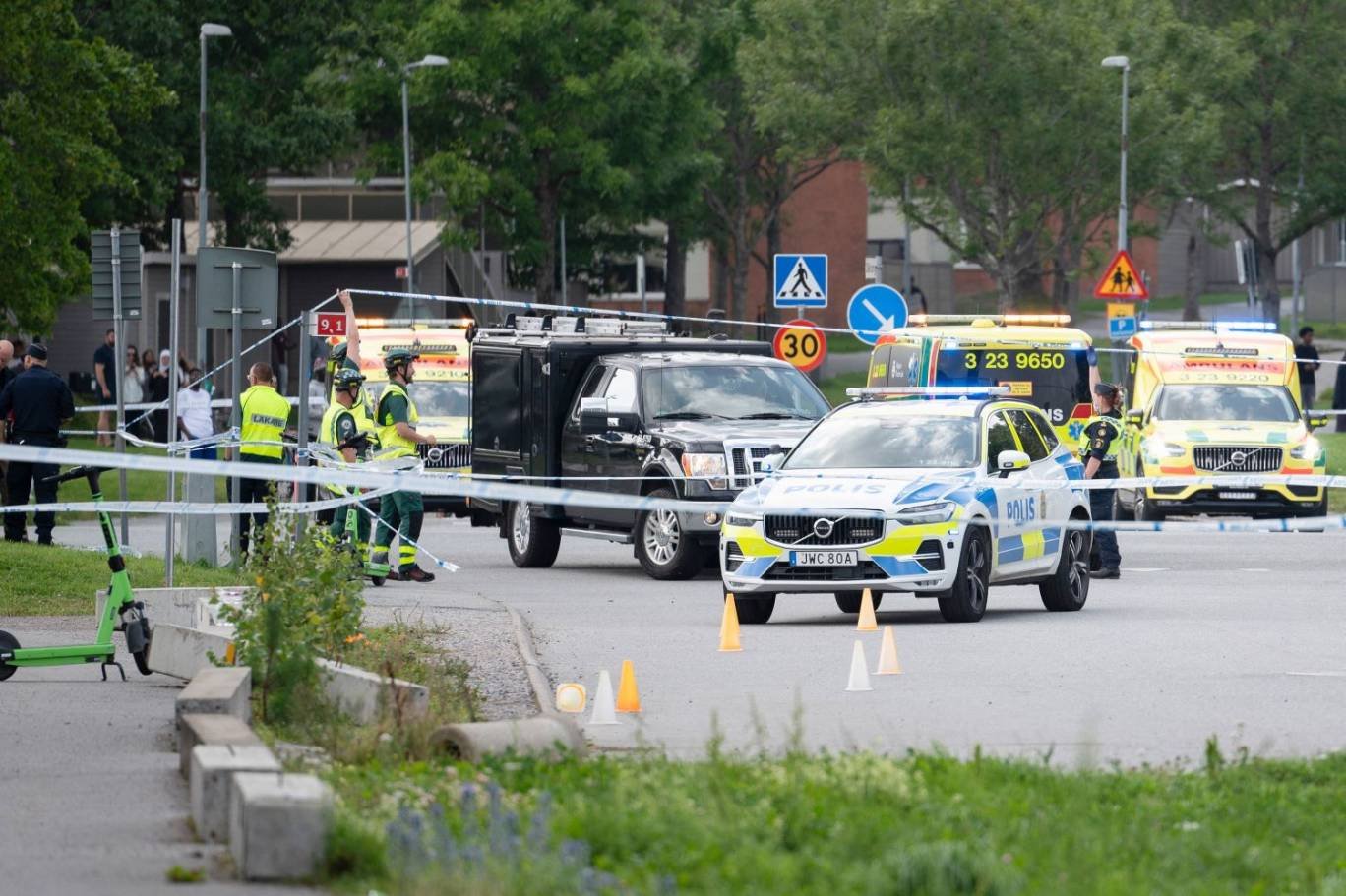Washington, United States – Analysts at the American think tank JINSA (Jewish Institute for National Security of America) called on the US administration to exploit the results of the “Twelve-Day War” between Israel and Iran. A new policy must be formulated aimed at preventing Tehran from rebuilding its nuclear and military capabilities.
In a strategic report published by the institute on Friday, October 17, titled “Building on Victory,” experts emphasized that the ultimate goal of US policy should be “comprehensive pressure.” This pressure should lead to the gradual collapse of the Iranian regime or subject it to a strict agreement.
tactical success
The report explained that the recent Israeli-American military operation against Iranian nuclear, missile, and military facilities achieved a significant tactical success. However, it emphasized that this does not amount to a strategic victory as long as Tehran is able to rebuild its infrastructure.
The report’s authors, who are prominent US national security figures, some of whom held positions in both the Bush and Trump administrations, proposed a series of measures, including a permanent ban on uranium enrichment and the destruction of centrifuges.
As well as halting the production of missiles and drones, cutting off support for pro-Tehran militias, and releasing American detainees.
Maintaining the sanctions imposed
The report emphasized the need to maintain all sanctions imposed on Iran during any potential negotiations. It also emphasized keeping the military option on the table for a rapid response should Tehran violate the agreements or resume nuclear activities.
In concluding the report, analysts emphasized that “victory in the war cannot be complete unless Iran is prevented from regaining its strength.” The experts called for broad US-Israeli-European coordination to ensure lasting strategic superiority and prevent Tehran from threatening regional stability again.
Consequences of war
أكد محللون أمريكيون في مركز أبحاث JSNA أن على واشنطن استغلال عواقب حرب الأيام الاثني عشر لصياغة سياسة جديدة.
They believed that the ultimate goal should be to prevent Iran from rebuilding its nuclear and military capabilities, through broad-based pressure until Iran gradually collapses.
In this strategic report published by the Jewish Institute for National Security of America (JINSA) on Friday, October 15, entitled “Building on Victory: America’s Strategy toward Iran after the 12-Day War,”
The report examines the consequences of war between the Islamic Republic and Israel and emphasizes the need to redefine US policy toward Tehran.
Gensa Center
The JINSA Center is an influential think tank on U.S. foreign policy and national security. The center plays a significant role in U.S.-Israel relations, and some of its senior members served in the George W. Bush administration and the first Trump administration.
The report’s authors emphasized that despite the military success of the joint Israeli-American operation against Iran’s nuclear program, the main question for Iran and Israel is when this war will resume and what its results will be.
During the 12-day war, Israel carried out extensive airstrikes on Iranian missile, military, security, and nuclear facilities. It also targeted a large number of senior Iranian Revolutionary Guard Corps commanders and Iranian nuclear experts.
According to analysts at this institute, the Islamic Republic is trying to compensate for the defeats it suffered as a result of this war and continues to refuse to enter into real negotiations.
The authors emphasize that the United States, in close cooperation with Israel and its allies, should seize the opportunity. The goal is to prevent Iran’s military and nuclear rebuilding. Furthermore, Tehran must be forced, through comprehensive pressure, to accept a strict and comprehensive agreement.
The ultimate goal of this strategy is to radically weaken the Islamic Republic and bring about its gradual collapse.
The authors believe that the activation of the trigger mechanism by the three European countries is a sign of a shift in European approach. Their return to standing with Washington against Tehran illustrates this.
But they emphasize that a military victory in the 12-day war does not yet mean a strategic victory. Because the Islamic Republic designed its nuclear program in a piecemeal and secretive manner, it may be buying time to rebuild its capabilities.
In the second part, the report’s authors address the situation in Iran after the war. They emphasize that despite the heavy losses, the Iranian regime continues to insist on its positions.
According to the report, Tehran is attempting to maintain its position by concealing its enrichment levels. It is also continuing its illegal oil exports to China and increasing cooperation with Russia and Beijing to circumvent sanctions.
Victory over the Islamic Republic
The third part of the report is devoted to the plan proposed by the United States to consolidate victory in the conflict with the Islamic Republic.
This section emphasizes that Washington should seize this opportunity to draft an entirely new agreement. This agreement must be formally ratified as a binding treaty by a two-thirds vote of the US Senate.
Genesa analysts also emphasized that this agreement should be based on “more stringent” terms than the 2015 Joint Comprehensive Plan of Action.
Among other things, they proposed that the agreement include a complete and permanent ban on uranium enrichment and plutonium reprocessing at any level, the complete destruction of centrifuges and related facilities, and a halt to the production and deployment of missiles and offensive drones.
End the financial and military support provided by the Iranian Revolutionary Guard Corps to proxy groups. All American citizens and their allies detained in Iran must be released, and IAEA inspectors must have unrestricted access to all suspected sites.
The report continues that any negotiations must be conducted with a clear deadline and without extension. If Iran refuses, the United States must halt the talks and use other tools to prevent Tehran’s military rebuilding.
According to analysts at this American think tank, negotiations should be direct. At the same time, all sanctions imposed by the United Nations, the United States, and the European Union must remain in place.
During the talks, the military option should remain on the table to enable an immediate response if Iran rebuilds its nuclear facilities or activities.
In the final section, the report’s authors discuss practical steps to maintain US and Israeli military and political superiority.
Among the steps they proposed was full coordination between the United States, Israel, and European countries. The goal was to prevent Iran from rebuilding its nuclear and missile programs.
A clear warning to Tehran of a renewed attack in the event of a violation should be issued, and the delivery of aerial refueling aircraft to Israel should be accelerated. US precision munitions should also be stored on Israeli soil. Defense cooperation within the framework of US Central Command should also be expanded.
The report also calls on the United States to strengthen its military presence in the Middle East, including the deployment of bombers and bunker-buster weapons at Diego Garcia. Deterrence in the Gulf must be increased.
In concluding their report, the JINSA analysts emphasized that Washington’s strategic goal should be to move beyond a purely deterrent policy. It should move toward the controlled collapse of the Islamic Republic.
According to the authors, victory in the 12-day war will only be meaningful if the United States and its allies are able to exploit this situation. The goal is to prevent the revival of Iranian military and nuclear capabilities and create comprehensive pressure to force the regime to surrender or collapse from within.




